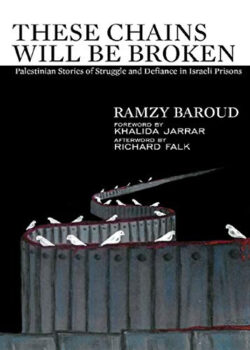 Photo credit from the archives of Newsonline
Photo credit from the archives of Newsonline
Exits of Netanyahu and Trump: chance to dial down Mideast tensions
The Iraqi geopolitical analyst, Ali Fahim, recently said in an interview with The Tehran Times: “The arrival of [newly elected Iranian President] Ebrahim Raisi at the helm of power gives a great moral impetus to the resistance axis.” Further, with new administrations in the United States, Israel, and Iran, another opportunity presents itself to reinstate fully the 2015 multilateral nuclear agreement, as well as completely lift the US economic sanctions from Iran.
Let us wait and see after Raisi is in power in August 2021. It is a fact that, since the Trump administration pulled out of the 2015 multilateral nuclear deal, tensions have been on the rise. One can legitimately suspect that the Trump pull-out had as its real intentions: first, to provoke Tehran; second to undo one of the only foreign policy achievements of the Obama administration, which was negotiated by John Kerry for the US. The Trump administration also used unfair economic sanctions on Iran as a squeeze for regime-change purposes. This was a complete fiasco: the Islamic Republic of Iran suffered but held together.
As far as military tensions in the region, there are many countries besides Syria where conflicts between Iran-supported groups and US-supported proxies are simmering, or full blown. The US does its work, not only via Israel in the entire region, but also Saudi Arabia and the United Arab Emirates in Yemen, and presently Turkey in Syria. Right now conflicts are active in Syria, Iraq, Yemen and Palestine, but something could ignite in Lebanon at any time.
 Photo credit from the archives of Newsonline
Photo credit from the archives of Newsonline
Iran views itself as the lead supporter of the resistance movement, not only through its support for regional allies like Hezbollah and Bashar al-Assad, but also beyond the Middle-East, for Maduro in Venezuela. The upcoming Iranian administration does not hide its international ambition. For better or worse, Iran sees itself as a global leader of smaller nonaligned countries that are resisting US imperialism, be it Syria, Yemen, Palestine, Lebanon, or Venezuela. Even though Iran is completely different ideologically, it has replaced the leadership of Yugoslavia’s Tito or Cuba’s Castro. Both were not only Marxists but also leaders of the nonaligned movement during the Cold War, when the US and the USSR were competing to split the world in two. Now the dynamics have shifted because of China’s rising global influence, and the Iran Islamic Republic thinks it has a card to play in this complex geopolitical imbroglio.
 Photo credit from the archives of Newsonline
Photo credit from the archives of Newsonline
In the US, Europe and Gulf States, Raisi has been categorized as a hardliner cleric and judge, but this gives Raisi more power than he will have as president. In Iran, major foreign policy issues are not merely up to the president to decide but a consensus process involving many. In the end such critical decisions are always signed off by Supreme Leader Ali Khamenei. Khamenei has already indicated that he supports going back to the 2015 nuclear deal. During his electoral campaign, Raisi, who is close to Khamenei despite previous opposition, said that if elected he would uphold the 2015 landmark nuclear agreement.
Ottoman empire revival under Erdogan
Turkey’s President, Recep Erdogan, often behaves as a modern day Sultan. He is shrewd and extremely ambitious. He fancies himself to be the global leader, politically and militarily, of Sunny Islam. Under Erdogan, Turkey has flexed its military muscles, either directly or through Syrian proxies, not only in Syria, but also in Libya, as well as in Turkey’s support for Qatar in the small Gulf State’s recent skirmish with Saudi Arabia. Erdogan thinks he now has a card to play in Afghanistan. More immediately and strategically, the serious issue on Erdogan’s plate is called Idlib.
 Photo credit from the archives of Newsonline
Photo credit from the archives of Newsonline
The problem of the pocket of Idlib has to be resolved, and unfortunately, for all the civilian population that has been and will be in the crossfire, it can only be solved by a full-on military operation, with troops from Bashar al-Assad and Russia. Turkey is, of course, adamant about keeping a military presence and influence within Syria to prevent a complete Assad victory. Time will tell, but the war of attrition has to end. For this to happen, Russia has to commit to face Turkey from a military standpoint. If Russia is ready for a direct confrontation with Turkey, then Bashar al-Assad’s troops, and Russian forces bringing mainly logistic and air support, should prevail.
What should make this easier is the fact Erdogan has overplayed his hand for quite some time. This includes his tense relationships with his supposed NATO allies, many of whom, including France, Greece and even Germany, would not mind having him out of NATO altogether.
There are important factors that explain, not only why Erdogan is quite popular with Turks, but also why his position could become precarious. Erdogan is playing on the Turkish nostalgia for the Ottoman Empire.
From one Empire to two others: the Sykes-Picot agreement
To understand better this imperial dynamic, we must go back to the middle of World War I, when the Ottoman Empire was allied with Germany. In 1916, the Sykes-Picot secret agreement effectively sealed the fate of post World War I Middle-East. This British-French agreement, in expectation of a final victory, was a de-facto split of the Ottoman Empire. In the resulting colonial or imperial zones of influence, a euphemism for an Anglo-French control of the region, the British would get Palestine, Jordan, Iraq and the Gulf area, while France would take control of Syria and Lebanon. More than 100 years later, the misery created by this imperialist deal lingers in the entire region, from Palestine, with the 1948 English-blessed creation of the Zionist state of Israel, to Iraq. France put in place two protectorates in Syria and Lebanon, in which the respective populations did not fare much better. Even today, French governments still act as if they have a say in Lebanese affairs.
 Photo Credit from the archive Magharebia
Photo Credit from the archive Magharebia
The weight of history and the nostalgia of 600 years of rule in the Middle-East are why some Turks — especially Erdogan — feel entitled to an intrusive role in the region. The unfortunate story of the Middle-East has been to go from one imperialism to another. With the American empire taking over in the mid-1950s, the only competition during the Cold War became the USSR. After the collapse of the Soviet Union, the US had carte blanche. It became more blunt about the exploitation of resources, regime-change policies and its role as the eternal champion of the sacred state of Israel. Quickly, Saudi Arabia, the United Arab Emirates, and Qatar became the US’ best friends in the Arab world. I have called this alliance between the West, Israel and the oil-rich Gulf states an unholy alliance. It is still at play, mainly against Iran.
 Photo Credit: David Stanley
Photo Credit: David Stanley
Since the collapse of the USSR, the US empire has tried to assert a worldwide hegemony by mainly two different approaches: support of autocratic regimes like those in the Gulf States, or pursuit of regime change policies to get rid of sovereign nations. This is what I have identified as engineering failed states: a doctrine at play in Afghanistan, Iraq, Libya, Syria, and Yemen. Often, Islam soldiers of fortune — called at first freedom fighters as in Afghanistan, or the so-called Free Syrian Army — have mutated down the line into ISIS terrorists. Once the mercenaries developed independent ambitions, they served a dual purpose: firstly, as tools of proxy wars; secondly as a justification for direct military interventions by the empire and its vassals. Since the US-led invasions of Afghanistan and Iraq the bottom line results have been the same: death and destruction. Tabula rasa of Iraq, Libya and Syria, with countries left in ruins, millions killed, and millions of others turned into refugees and scattered to the winds. The numbers are mind boggling in the sheer horrors they reflect. According to the remarkable non-partisan Brown University Costs of War project, since the start of the US-led so-called war on terror, post September 11, 2001, in Afghanistan, Iraq, Syria, Pakistan and elsewhere the direct cost in people killed has been over 801,000. So far, the financial burden for US taxpayers has been $6.4 trillion.
 Photo credit from the archives of Newsonline
Photo credit from the archives of Newsonline
Does Erdogan think he can do better than Alexander the Great with Afghans?
Apparently Erdogan’s imperial ambitions reach as far as the land of the Pashtuns. The Taliban already control about 85 percent of Afghanistan. While most NATO troops have either left or are in the process of doing so, Erdogan has volunteered Turkish troops to secure Kabul’s airport. Some in the Middle-East speculate, rightly or wrongly, that Erdogan plans to send to Afghanistan some of his available Syrian mercenaries, like those he has used in Libya. Even if this is rubber stamped by regional powers like Pakistan or Iran, which it won’t be, such a direct or proxy occupation will fail. If Turkish or Syrian mercenaries, or any other foreign proxies for that matter, try to get in the way of the Taliban, they will be shredded to bits.
Does Erdogan think he is a modern day version of Alexander the Great? This is plainly laughable! The Taliban are resuming control of Afghanistan, and that is the reality. Something Afghans agree upon is that they want all occupying foreigners out. This will include Turkish and Syrian mercenaries.
 Photo Credit: Gilbert Mercier
Photo Credit: Gilbert Mercier
Post Netanyahu Israel: more of the same for Palestinians?
For the Palestinians living either in Gaza or in the occupied territories, one element that has changed in Israel is that Netanyahu is no longer in power. It would be naive to think that the new Israeli administration will be less Zionist in its support for Jewish settlers expanding their occupation of Palestinian land, but we might see a small shift, more like a pause in Israel’s bellicose behavior.
Lebanon on the brink: opportunity for Israel to attack Hezbollah?
Despite Lebanon’s dreadful political and economic situation, Israel would be ill advised to consider any military action. Hezbollah is a formidable fighting force of 70,000 men, who have been battle hardened for almost a decade in Syria. Vis a vis Iran, a direct aggression of Israel is even less likely. With Trump gone, it seems that Israel’s hawks have missed out on that opportunity. Furthermore, it would be borderline suicidal for the Jewish state to open up many potential fronts at once against Hezbollah, Hamas, and Bashar al-Assad’s army. All of them would have the backing and logistic support of Iran.
Once the 2015 nuclear agreement is in force again, with the Biden administration, the tensions in the region should significantly decrease. It is probable that in the new negotiations, Iran will request that all the US economic sanctions, which were put in place by the Trump administration, be lifted.
 Photo credit from Resolute Support Media archive
Photo credit from Resolute Support Media archive
Neocolonial imperialism: a scourge that can be defeated
One thing about US administrations that has remained constant pretty much since the end of World War II is an almost absolute continuity in foreign policy. From Bush to Obama, Obama to Trump, and now Trump to Biden, it hardly matters if the US president is a Democrat or Republican. The cornerstone of foreign policy is to maintain, and preferably increase, US hegemony by any means necessary. This assertion of US imperial domination, with help from its NATO vassals, can be blunt like it was with Trump, or more hypocritical with a pseudo humanitarian narrative as during the Obama era.
The imperatives of military and economic dominance have been at the core of US policies, and it is doubtful that this could easily change. Mohammed bin-Salman‘s war in Yemen is part of this scenario. Some naively thought MBS would be pushed aside by the Biden administration. The clout of the Saudis remained intact, however, despite the CIA report on the gruesome assassination of a Washington Post journalist in Turkey. All evidence pointed to bin-Salman, but he was not pushed aside by his father. Under Biden, MBS is still Saudi Arabia’s Crown Prince, and de-facto autocratic ruler. The Saudis’ oil and money still have considerable influence in Washington.
The Saudis understand very well that, since the 1970s, their real geopolitical power has resided in the way they can impact global oil prices. They can still make the barrel price go up or down to serve specific geopolitical interests. For example, recently the Saudis tried to help the US regime change policy in Venezuela by flooding the global market to make oil prices crash. Saudi Arabia and its United Arab Emirates ally have used the black gold as an economic weapon countless times, and very effectively.
The great appetite of the Saudis for expensive weapons systems is another reason why they have a lot of weight in Washington and elsewhere. How can one oppose the will of a major client of the corporate merchants of death of the military-industrial complex?
 Photo Credit from archive of DVIDSHUB
Photo Credit from archive of DVIDSHUB
History will eventually record the 20-year Afghanistan war as a defeat and perhaps the beginning of the end for the US empire that established its global dominance aspiration in 1945. People from countries like Yemen, Palestine, as well as Mali, Kashmir, and even Haiti, who are fighting against an occupation of their lands, respectively, by the imperial little helpers Saudi Arabia, Israel, France, India and the United Nations, should find hope in what is going on in Afghanistan. My News Junkie Post partner Dady Chery has explained the mechanics of it brilliantly in her book, We Have Dared to Be Free. Yes, occupiers of all stripes can be defeated! No, small sovereign nations or tribes should not despair! The 20-year US-NATO folly in Afghanistan is about to end. The real outcome is a victory of the Pashtuns-Taliban that is entirely against all odds. It is a victory against the most powerful military alliance ever assembled in history. Yemenites, Palestinians, Tuaregs, Kashmiris, Haitians and other proud people, fighting from different form of neocolonial occupations, should find inspiration from it. It can be done!
 Photo Credit from the archive of Antonio Marin Segovia
Photo Credit from the archive of Antonio Marin Segovia
This post was originally published on Dissident Voice.















